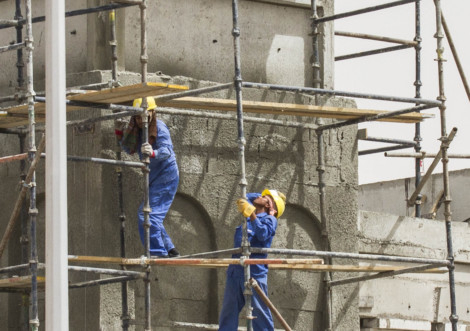
Over the past 24 to 36 months, several developers have launched off-plan projects in the UAE. These projects, targeted especially at the mid-market segment, have mushroomed as developers identified an opportunity to address increasing demand for affordable properties in the country.
During the global financial downturn, off-plan properties received a bad reputation due to a number of developers backing out on their commitments and, in some cases, even fleeing the country. This left many investors without the properties that they had paid hard-earned cash for. Furthermore, the segment was also not well-regulated, with short-term investors often “flipping” units. However, tighter regulations and laws introduced by the government, Dubai Land Department and UAE Central Bank have diminished the risk and ensured that this is no longer the case.
In fact, the off-plan property market had sprung back into action since 2013, with investor confidence rapidly regaining momentum. According to realty specialists, there has been a surge of off-plan property resale offers over the past year alone. This is the result of a significant overhaul of the real estate sector in Dubai, designed to protect the interests and rights of buyers and sellers. In addition, the activities of the developers today are closely monitored, ensuring that there is full compliance to rigorous regulations.
Why choose off-plan?
A key advantage of buying off-plan is affordability. Homeowners investing in off-plan can usually afford larger properties as the prices are lower in contrast to completed projects. Furthermore, developers tend to offer attractive payment plans for properties that are under construction, reducing the need to pay 100 per cent for a property up front. Customers can also choose from a wide variety of projects and can benefit from capital appreciation closer to or during the handover. This means the return on investment is generally higher, as the price of the property tends to increase upon completion of the project.
However, choosing an off-plan investment ultimately depends on your needs. For example, if you are a first-time buyer considering an off-plan property for end use, keep in mind that you would need to pay 50 per cent of the property price before you are eligible for a finance. In addition, buyers looking at purchasing off-plan should take a long-term view. This means you should only buy if you are willing to wait for a few years before moving in.
Benefits of an off-plan finance with a bank
If you are seeking finance for off-plan property, banks are a good option. As a result of the standard regulations in place, banks usually only offer off-plan financing when developers adhere to stringent criteria, protecting both the bank and the customer from unnecessary risk.
For example, banks conduct their due diligence before bringing on board a developer or a project, and will study the developer, its track record of delivery within and outside the UAE, its financial cash flows, construction quality, history with contractual obligations, and its execution, i.e. timely delivery of projects. In addition, the government has put in place several laws and regulations to protect those who invest in off-plan or under-construction projects.
Banks also regularly look out for new developments that are launched to meet their client’s off-plan financing needs, and are also on the lookout for developments that are not too far from completion. This ensures that the list of projects for clients to choose from is dynamic and diverse.
If you are in need of funds for an off-plan property, now is a good time to lock it in with a financial institution, before rates hike further. When assessing an applicant for off-plan financing, banks tend to look at the income level, ability to pay the instalments, financial exposure to other financial institutions and much more, so ensure you have all essential documentation ready.
The Islamic option
Investors should also consider Islamic banks, which can also provide an advantage when financing off-plan projects. For example, at Noor Bank, we offer Sharia-compliant product structures, where customers make monthly payments based on the last tranche disbursements covering both the fixed as well as variable rental portions. This gives the bank reassurance of the customer’s commitment in the finance throughout the construction period.
In addition, the structure works well for customers as it removes the burden of a lump sum rental (profit portion) payment upon handover. Moreover, since tranche payments are monitored and are linked to construction milestones, the risk is automatically lowered for all parties concerned.
Finally, the profit rate applicable during the construction period stays the same throughout the period as well as the first year after delivery, and is set out mutually at the onset of the finance. This brings added certainty into the transaction.











